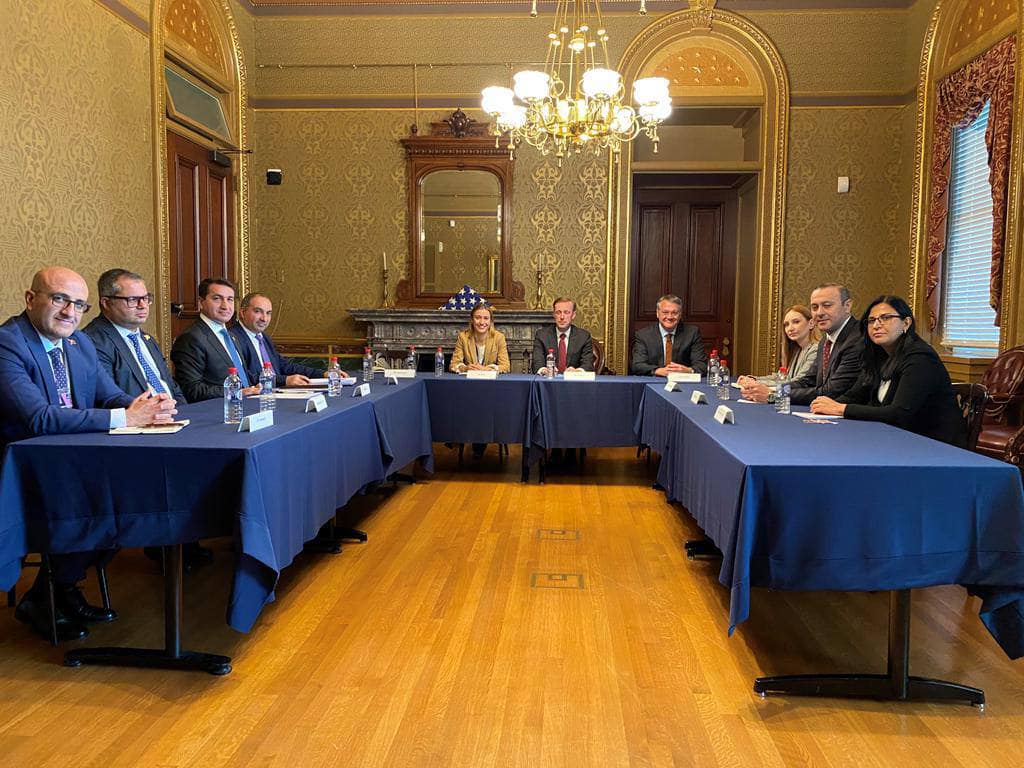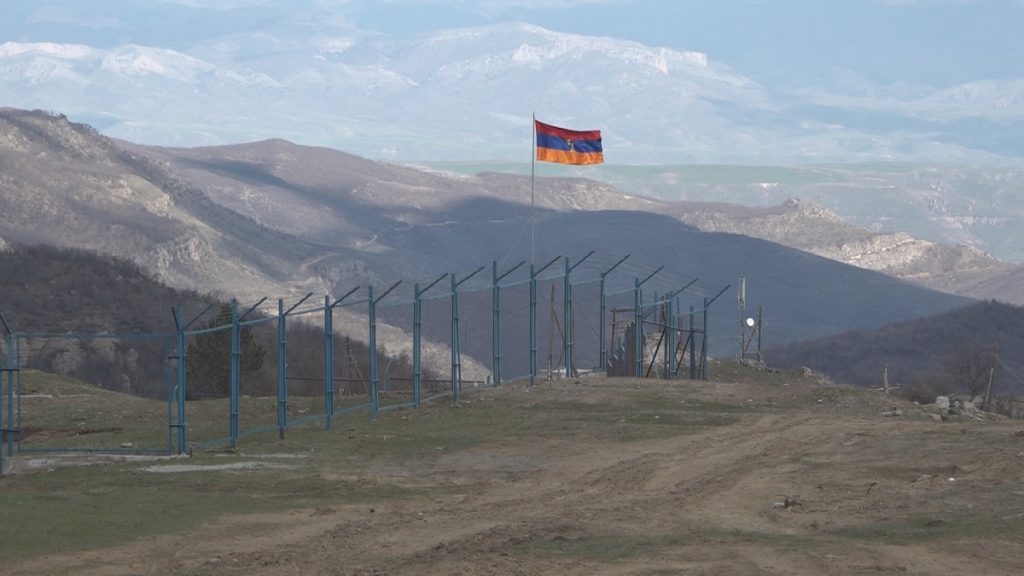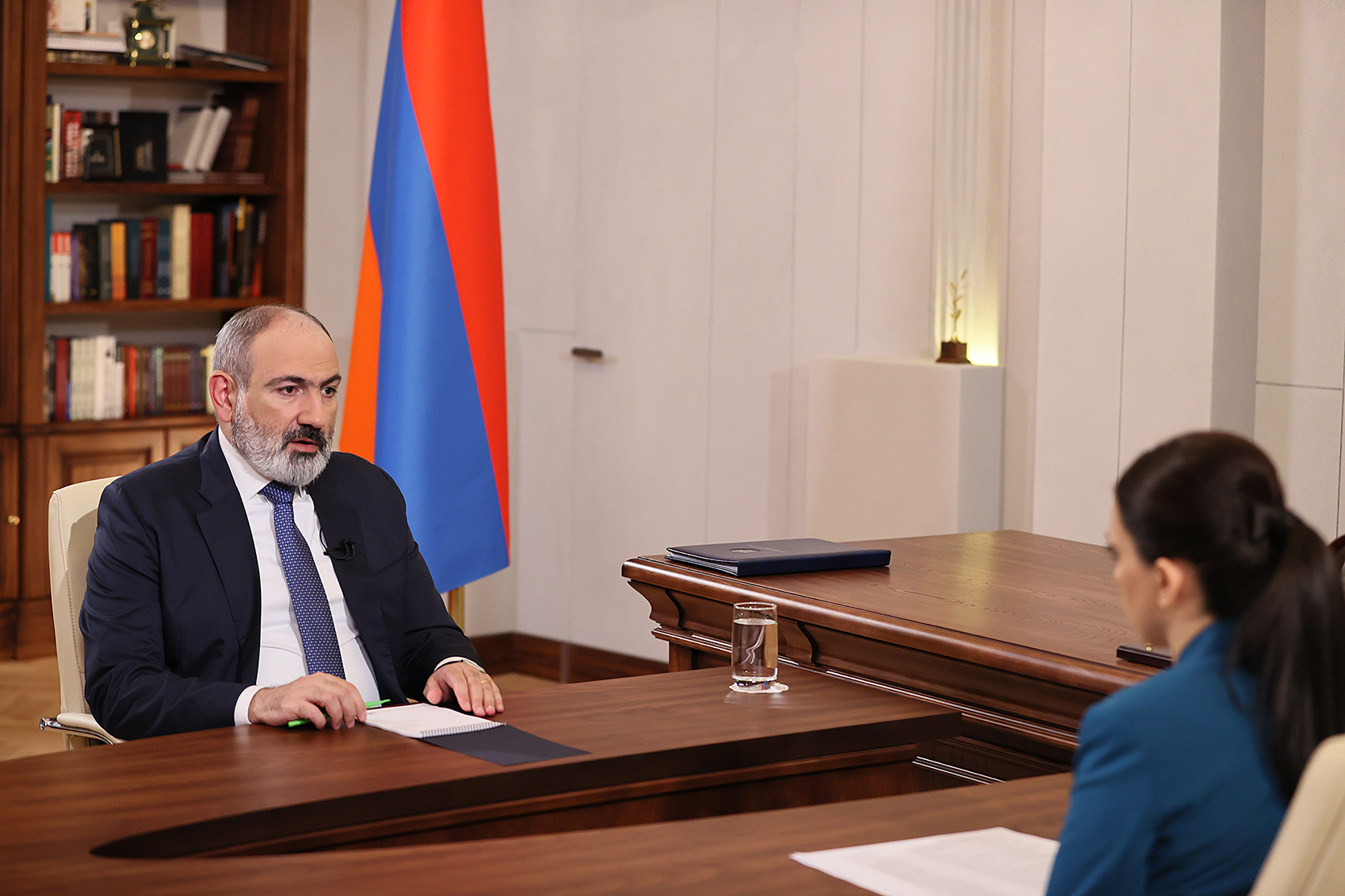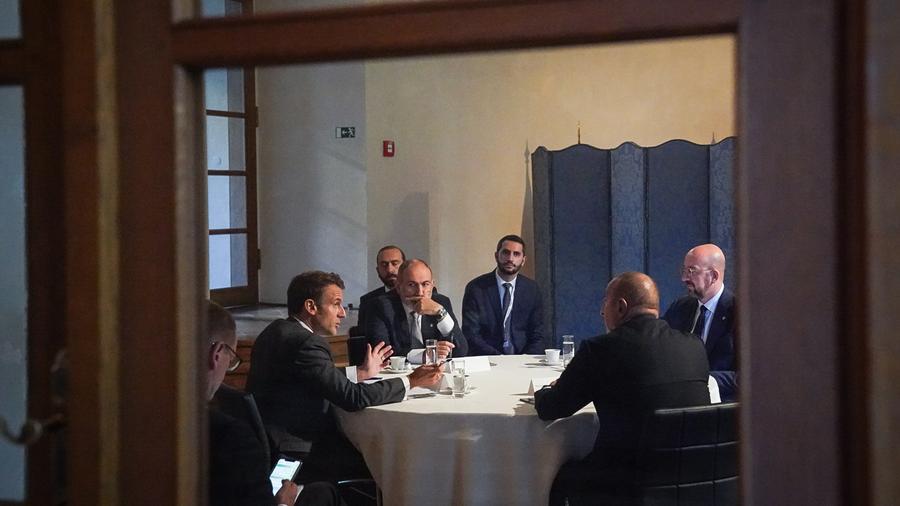What did Yerevan and Baku agree on? Details from the Secretary of the Security Council of Armenia
Armenia-Azerbaijan negotiations
“By the end of the year, Armenia and Azerbaijan will sign a peace agreement. The border delimitation process will also be completed by then,” Secretary of the Armenian Security Council Armen Grigoryan said.
Grigoryan told public television some details of the latest Armenian-Azerbaijani talks, including his own with the adviser to the President of Azerbaijan, Hikmet Hajiyev. He talked about the agreements reached on the normalization of relations between Armenia and Azerbaijan, as well as the importance of direct dialogue between Stepanakert and Baku and the resolution of the Nagorno-Karabakh conflict.
“As for the Karabakh conflict, the main question was how to create an international mechanism for Nagorno-Karabakh and Azerbaijan to discuss issues of security and rights of Armenians living in NK,” Grigoryan stated.
The main points of the interview with Armen Grigoryan.
Grigoryan said that during the meeting held in Washington, he and Hikmet Hajiyev discussed the following issues “concerning the Armenian-Azerbaijani relations”:
- timetable for the peace treaty,
- border delimitation,
- unblocking of regional roads,
- return of Armenian prisoners of war to their homeland.
Grigoryan and Hajiyev agreed that by the end of September, Baku would return seventeen Armenian soldiers taken prisoner during the recent hostilities. But this agreement was not fulfilled. The prisoners were returned on October 4 through the mediation of the United States.
“The peace agreement will be signed before the end of the year”
Regarding the signing of a peace agreement by the end of the year, the Secretary of the Security Council of Armenia said that the delimitation of the border will be carried out in parallel, since “these issues are interconnected.” The Armenian authorities do not consider the signing of a peace treaty to be a sufficient guarantee of security.
“Armenia’s concern remains that after the signing of the peace treaty, Azerbaijan may use the so-called non-delimited border as a pretext to attack Armenia. Therefore, we agreed on this issue as well,” Armen Grigoryan said.
“Baku’s new proposals are in the logic of the previous”
Grigoryan also gave details about the meeting of the Foreign Ministers of Armenia and Azerbaijan in Geneva. There, Armenia received new proposals from Baku on a peace treaty, which remain in “the logic of the five points” that were presented earlier:
“Now we are working on this proposal. I hope that we will respond soon and there will be an opportunity to meet and discuss these proposals.”
According to the Secretary of the Security Council, Azerbaijan’s proposals for a peace treaty on Nagorno-Karabakh “do not specifically say anything.”
“The negotiation approach is that, under a peace agreement, we regulate Armenia-Azerbaijan relations, and on the part of Nagorno-Karabakh we continue negotiations both with our partners and with all players in order to create an international mechanism for discussing rights and security issues between Nagorno-Karabakh and Azerbaijan”.
“There is no clarity about international mechanisms”
According to Grigoryan, the Armenian government’s approach is that a resolution of the Nagorno-Karabakh problem and the creation of international mechanisms for dialogue with Azerbaijan are a separate process from the peace treaty.
He called the opposition’s allegations that “the direct dialogue between Baku and Stepanakert means that Armenia washes its hands” and leaves Nagorno-Karabakh without support false:
“These are additional security guarantees to make sure that the international community is also involved and bears its share of responsibility in ensuring the security and rights of Nagorno-Karabakh.”
The international community’s participation will ensure the transparency of discussions and the absence of security threats. However, Grigoryan said there is still no clarity regarding these mechanisms.
“The international community, our partners believe: Armenia can move forward in all negotiations if there are guarantees, if it is convinced that security guarantees and protection of their rights have been created for the Armenians living in Nagorno-Karabakh.”
“The process of delimitation can be said to be completed”
Grigoryan expressed the opinion that the Armenian-Azerbaijani border was “by and large delimited”, since Armenia, Azerbaijan and Georgia were delimited in 1929.
“We can say that the process of delimitation between Armenia and Azerbaijan has been completed, it remains to come to a mutual agreement that we accept this as a basis, we accept this border between the two countries. We will insure the territory of Armenia of 30,000 square kilometers [against the claims of Azerbaijan] and move forward [in negotiations].”
“Armenia has never discussed the corridor issue”
Grigoryan said that Armenia has always negotiated with a unified approach, excluding “corridor logic”, a road that Azerbaijan demands to connect with its exclave of Nakhichevan. In response to this demand, the Armenian authorities answered that they are ready to provide roads, but not a “corridor”, since this term implies loss of sovereignty in these territories.
“After the May meeting of the leaders [of Armenia and Azerbaijan] in Brussels, Aliyev returned to Baku and stated that we discussed the corridor. The press secretary of the head of the EU was forced to publicly declare that there was nothing like this, we had never discussed the issue of the corridor,” Grigoryan said.
He reiterated Armenia’s position on this issue: the unblocking process should take place without loss of sovereignty on the roads.
“Countries that observed Azerbaijan’s aggression are trying to be useful”
Grigoryan recalled that since May last year Azerbaijan has carried out at least three large-scale attacks on Armenian territories. At first international partners asked: “Who was the first to start hostilities?” But with regard to the September events, the situation was already different:
“After the recent invasion, the entire international community saw that Azerbaijan attacked, carried out aggression, and occupied Armenian ground.”
The journalist who spoke with Grigoryan’s secretary said: “Everyone except Russia.” In response, the Secretary of the Security Council stated that “those who observed this aggression are trying to be useful so that we can continue our work, create stability mechanisms and have Azerbaijani soldiers withdrawn from Armenian territory.”
According to him, Armenia continues to work in this direction and is ready to work with all countries that are “ready to be useful to the process.”
According to him, the EU civilian mission will soon be located along the Armenian-Azerbaijani border in order to “ensure stability and security.”
“There is no news from the CSTO”
Answering a question as to whether Armenia had received any proposals from the CSTO military bloc after it asked for military assistance against the Azerbaijani military on its territory, Grigoryan said that he did not have such information:
“I, like you, have no news that the CSTO [Collective Security Treaty Organization operates under the auspices of Russia] is going to take any steps to force Azerbaijan to leave the sovereign territory of Armenia.”
According to Grigoryan, Armenia submitted “all its proposals and approaches” to the organization hoping that steps would finally be taken, but has not yet received a “substantive response”.
Armenia-Azerbaijan negotiations






















